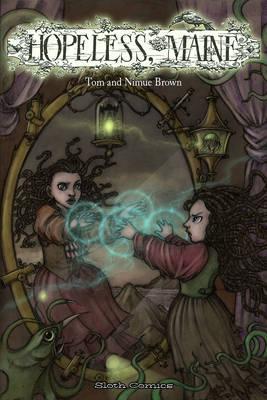Nimue Brown's Blog, page 301
December 14, 2016
Visiting other worlds
Imaginary worlds can play such a big role in our lives. So many people have been moved by Middle Earth, many of us know which Hogwarts House we should be in. As adults we can invest a surprising amount of passion and energy in things that do not, in any tangible sense, exist. And those investments can have huge, real world consequences. How many people get into physics because they secretly hope to invent warp drive, or the light sabre? We have to imagine something before we can make it real.
Creating a world is an incredible process. Creating a setting that is not exactly the world you inhabit is plenty enough of a job. Living between the world that is seen, and a world that is only seen by you is a strange sort of thing to engage in. Those more drawn to shamanistic world views might be inclined to wonder how much the world a creator ‘sees’ was there already, just waiting to be found…
When a speculative book comes into the world, we get to interact with each other’s imaginary places. One of the great joys for me, in helping Tom create Hopeless Maine, has been watching people get involved and make parts of the story their own. It’s a roomy reality, it’s always been open to collaborators, and back when we were running The Hopeless Vendetta regularly – the island’s newspaper, people really did get involved in the stories. (Do, do read the comments).
Hopeless Maine is back out – volumes one and two in a single edition, plus The Blind Fisherman (previously on the webcomic but not previously on paper) and a new small story about Reverend Davies.

The Book Depository has been the most reliable place to find a copy, it’s available all over, but keeps selling out! http://www.bookdepository.com/Hopeless–Maine–Volume-1/9781908830128
At the same time, Kevan Manwaring’s The Long Woman has just re-released. This is book one of a five book series and I know the rest are on their way. The Long Woman has more of this world in it than the other four books, but it opens the door to a fabulous, speculative otherworld. It’s a setting that I very much enjoy and am delighted to be re-reading (plus, I’ve books four and five yet to read!).
The Long Woman is on Amazon – https://www.amazon.co.uk/dp/1906900442

There’s something wonderful about being able to share in, engage with, talk about other people’s fictional realities. Worlds made of dream and hope, of nightmare and concern, and everything that goes on inside a person.


December 13, 2016
Meditation for depression
Depression tends to take people into the dark places of their own minds. Consequently, any form of meditation that is basically about stilling your mind and noticing your thoughts, will not help. There are times when noticing that you are thinking in a depressive way will be useful, but it can easily reinforce the experience. Further, depression tends to undermine concentration and create feelings of apathy and pointlessness, which can make some meditations technically very difficult.
On the whole, meditation that takes you out of yourself is the most useful. Techniques with the potential to distract, and inspire can help shift a mood while anything that makes you more self aware can perpetuate it.
I recommend deliberate concentration on something other than the self. Anything you like will work. It could be a houseplant or the view from a window, an oracle card, an object – natural or created. Skies, landscapes, birdsong, the feel of grass under your hand. Whatever appeals to you.
Then simply sit with it and pay it a lot of attention. Notice the details, let those details fill your thoughts. If your mind derails you, just take a few deep breaths and go back to what you were doing, or let your attention shift to some other external thing. Do it for as long as you feel comfortable.
In this way, the benefits of slowing down are available without the hazards of introspection.
Physical meditation practices, and recorded visualisations and pathworkings are also worth a thought. I wouldn’t recommend trying to do visualisation from books as the odds are you won’t have the concentration, but a friendly voice on a CD will keep you on track if you want to do something more creative with your brain.
Don’t push yourself into anything that doesn’t feel right. Being gentle with yourself is very often essential for getting out of a depressive hole, any pressure to ‘be spiritual’ or ‘be disciplined’ about something uncomfortable can leave you feeling worse off, not better.


December 12, 2016
Scarcity, abundance and sufficiency
We live in an age that creates an impression of scarcity and often creates a reality of scarcity, to keep us hooked on buying more stuff and working more hours. We don’t have enough time. There’s not enough money to take care of our homeless or help refugees from war zones (there is money for weapons). We are encouraged to fear others, who may use resources, we are encouraged to accept environmental degradation for the sake of there being ‘more’.
The truth is that many of us have an abundance of good things, some of us have excess, but we can’t always see it. I blame the corrosive effect of advertising. The best way to deal with the issues of scarcity in your life, is to look for abundance, and practice gratitude. Let me be clear, if you do not have enough food, if you can’t heat your home, this is not going to be of much direct help to you. But, having been through some harsh times myself, I do think that recognising whatever you have, however small it is, helps with dignity and a sense of wellbeing. Poverty causes considerable stress, alleviating the stress will help you.
It’s easy to get trapped in obsessing over what we haven’t got. If you are missing essential things, this is an issue that can never be that far from your mind. However, for many people, the sense of scarcity and threat has more to do with fear than it does with life. Take the time to find whatever small goods there are in your life. What makes you happy? What do you have enough of? More than enough? What can you share?
If you are keeping things for the sake of it, give some of it away. It’s a liberating feeling, but nothing will help you feel abundant more than recognising that you had something you didn’t need, and passing it along to someone who could use it. Whatever time off you get, look at how you use it, for your own sense of wellbeing and to contribute to other people’s. You might have little money, but a time rich person has all kinds of opportunities. It may be that you are a compassionate person, and that care is the abundance you can share with others. If you have a car, your abundance might mean giving lifts to those who don’t. You might give away excess produce. Write a blog and share your ideas. There are many other ways of doing this, too.
A person doesn’t have to go a long way out of their way to feel a bit abundant, a bit generous. Of course, in sharing your abundance, however small, you are making life better for someone else. You are alleviating their sense of scarcity and showing them how to share whatever abundance they can find. Imagine the possible knock-on effects. Imagine what could be alleviated.
We can use our feelings of abundance to tackle feelings of scarcity, and by doing this, we can move towards a sense of sufficiency, of recognising when we have enough. This in turn would reduce overall consumption. We can help reduce the scarcity experienced by others. If abundance means sharing, then hording would be less acceptable. It would be a hefty cultural revolution, but it is thinkable.


December 11, 2016
Living with Bimbles
Bimbles are creatures from the third book of the awesome Matlock the Hare series, but they are also a truth. When a person has a plan, bimbles will latch on to them, get in their way and slow them down. The bimble in your life needs you to stop when you are busy and hear a story you have already heard about a problem they won’t try a solution for. They need to regale you with a blow by blow account of what they saw on the telly last night. They will respond to the thing you are actually doing by wanting an indepth conversation about something similar they had once thought of doing. Online they’ll drown genuine issues in a swamp of maundering over the most trivial details. “But you said he was wearing a green hat when he did it, and clearly it was a red one.”
Much of it, no doubt, is motivated by boredom, loneliness and a desire for attention. However, one of the things that really sets a bimble apart from someone who is merely bored or lonely, is that the bimble has to be the most important person in the conversation. They aren’t doing much of interest, and will use their banality to undermine your enthusiasm. The White Wolf Changeling game used the term ‘autumn people’ to identify a similar trait set. Terry Pratchett talked about it in terms of the crab bucket. Banality that cannot bear the presence of genuine energy and activity, failure that cannot bear success, will try to smother it. It’s useful to have terms for these things and to be able to identify the habits of the archetype.
So, let’s imagine that you are working on something. The something in question is wild, radical, creative, innovative, life changing and big. The bimble will respond to this by trying to take energy from you. They will be quick to say how pointless, futile and silly your plan is. They will bring you down to earth with a bump, confident they are doing you a favour and then you’ll get to hear a long story about how the cat was sick on the rug last week, and they had to clean it up.
We are all obliged to deal with mundane reality. It’s an essential part of life. The trouble is that for some people, it’s only the most banal and repetitive things that have reality, and anything else, anything with a dash of change in it, looks like a threat. At the very least, the bimbling routine protects them from having to know about what you were doing. It helps them maintain the belief that change doesn’t happen. It leaves them feeling in control of their space.
A small dose of bimbling doesn’t do anyone any real harm. The problems come if the bimble is part of your household, workspace, or social network in a way you can’t avoid. A bimble who is in your life in an ongoing way will be an ongoing obstacle to anything and everything. My guess is that they try to keep others powerless and passive as a way of dealing with their own powerlessness, but if you want to get anything serious done, avoiding the bimbles is an essential part of the process.
More about Matlock the Hare here – http://www.matlockthehare.com/


December 10, 2016
Bard Skills – seasonal material
There’s much to be said for having material that covers the seasons and the festivals, allowing you to express where you are in the year. The folk tradition has a lot to offer – but not, it should be noted, much specifically for the equinoxes.
There are however a number of issues with learning seasonal material, so it’s worth being aware of those before you embark on your journey.
In any given year you may only get a couple of opportunities to perform a piece. Learning something, and keeping it in your head for the long term with so few performance opportunities is a lot of work for a modest result.
People may well remember what you did at the midwinter gathering last year, one song for each festival might not be enough.
Everyone, absolutely everyone does or knows John Barleycorn. Find something else for Lammas if you want to stand out.
If you want to impress, you have to practice ahead of performance so you need to be rehearsing for material ahead of where you are in the year.
The vast majority of Paganised Christmas carols sound naff.
Have fun with it! If you aren’t enjoying it, no one else is likely to either.


December 9, 2016
The Blind Fisherman sees the light of day.
“Could you just…?” And more often than not, yes I can. This is a story about wordy rabbits pulled from hats in the service of art. Things I have done for love and for the sheer joy of doing it – which I am increasingly finding is the only way I want to work… Do hop over to the original blog post for the lovely art.
This *may* not be as profound as the title suggests, but it has nice pictures, so stay with me dear reader, just for a while.

Hello again people (and others).
As some of you may know, some of Hopeless, Maine has been published before, but *this* time it is being published entire. That means, with the (rather important) prelude-The Blind Fisherman. We’re dead chuffed about that, and about our new publisher, Sloth Comics.
When Nimue and I started this story many years ago, we started in what is now, the middle-ish bit (but closer to the beginning) . Salamandra was already a young adult and looked like this.

Nimue wrote the script for the whole story, all the way to the end. Yes. This story does have a definite end. (Probably) Then, I was invited to be a guest at an anime con in Portland, Maine and I saw the power…
View original post 409 more words


December 8, 2016
For the love of God, Marie!

Some books are not easily described, so as I fumble my way towards a review, let me start by clarifying that this is a brilliant, surprising sort of book and I really liked it.
For the love of God, Marie! is a graphic novel by Jade Sarson. Page by page it is indeed a comic, but there’s a lot of it and a proper novel shape, so ‘graphic novel’ seems the right term. The main character, Marie, starts out in the 6th form of a Catholic school in the 60s, and we follow her through her trials and adventures into the 90s.
It’s a beautifully drawn book. There are some manga influences, so for the less manga literate odd things (like being able to see where a person’s eyebrows are regardless of where their hair is) may cause confusion. You have to trust the artist and trust that what she’s showing you is more important than a literal representation. I found it a visually accessible book, although Jade does challenge you to keep up with the action sometimes and doesn’t spell everything out. She uses a fairly limited pallet to remarkable effect and she really, really knows what people look like.
I knew before I got the book that it had a significant amount of erotic content. I’d expected it to be a romp, but once it gets going, the story I found touching through to heartbreaking. Marie sets out to love everyone, especially the people deemed least loveable. There’s an innocence to her, an obliviousness to the idea of sexual sin. However, as a Catholic schoolgirl, with Catholic parents, she’s subjected to continual humiliation and slut shaming because she loves too much. Misunderstood, she doesn’t get any easy time of it, and fate plays some cruel tricks on her.
Representations of polyamorous folk in literature are few. Promiscuous men (and that’s not the same thing) aren’t so unusual, but women who are plural in their loving, don’t show up much. This is the least erotic book I’ve encountered with a polyamorous lead; a bisexual character and a woman whose life and sexual identity don’t stop in response to motherhood or becoming middle aged. I wish there was more of this sort of thing.
There’s a naked woman on the cover of the book. If naked people having a good time offend you, then you won’t like it. We live in a culture that fears sex, is horrified by it, doesn’t want people under the age of 18 looking at it but will cheerfully show them depictions of war and murder. This has always confused me. But then, I found a lot to empathise with in Marie, and I’d rather live in a world where no one is condemned for loving too much.
More about the book here – http://www.myriadeditions.com/books/for-the-love-of-god-marie/


December 7, 2016
Meditation and Me
I’ve noticed of late a frustration and resistance when I read other people’s meditation books, and it’s taken me a while to figure out what’s going on there. It’s not like I pick up a meditation book with the intention (conscious or otherwise) of being annoyed by it. I am, and always have been, interested in learning new techniques and ideas.
Every book is based on assumptions about who the reader is, and this, I eventually realised is the essence of my problem. Meditation books teach us how to quiet our noisy minds, how to still our inner chaos.
I’ve been meditating more days than not for more than half my lifetime, but many of the key effects had kicked in long before I hit my twenties. Unless I deliberately sit to allow mind wandering and wool gathering, there is no white noise in my conscious thinking. There may be a song playing on my inner soundtrack, but other than that I have one, clear and deliberate line of thought. Things coming up from my unconscious do so in bubbles, surfacing in a noticeable way that I can then follow through on deliberately. I can have moments of inner silence at will if I’m waiting for one of those bubbles. Noise and chaos are really rare and most usually a consequence of being ill.
Meditation books (mine included) don’t really have much to say to the person whose mind is already quiet, already disciplined and free from chatter. I’m very conscious of my own emotions, I don’t need to spend time in meditation noticing them because I have a good relationship with them already. And so I get frustrated reading books that tell me how busy, noisy and out of control the inside of my head is.
What comes next? Other than the day to day practical benefits of having a calm, single line of thought with room for things bubbling up from the unconscious, what do I do with meditation? Often the answer with any spiritual practice is just to do more of the same, only to do it with more depth. Do it slower. Do it more. I think for me it’s going to mean a deliberate process of working on bits of me I know are wonky and I want to change.
It strikes me though, that if all meditation books do is talk about the issues of inner noise, it’s not entirely helpful. Yes, most books talk about developing inner calm, poise and peace, but in terms of what that’s like to live with, I’ve not seen much insight. Like most things I suspect it is what we make of it, and how it plays out will depend on our choices and preferences. Inside my head is a single, clear voice, because I’m a wordy creature and it suits me to communicate with myself in language. Other people will likely get other things, based on what works best for them. What long term meditation creates is the scope to have the inside of your head work in a way that feels good and is functional. Perhaps it is as well no one out there is issuing instructions on what that should look like because it gives us all chance to develop on our own terms.


December 6, 2016
A rant against Commercialmass
Let me start by saying that if you are celebrating a festival over the winter, as a spiritual festival, then I take no issue with it. If you are, in a more communal way, celebrating family, and friendship and planning things that will make people happy – yourself included – I take no issue with it. All power to you. Winters are gloomy, often depressing times and a bit of warmth and good cheer goes a long way.
Commercialmass is none of those things.
Commercialmass is about spending money you don’t have on things you don’t need – quite possibly to appease people you don’t even like. Commercialmass is false jollity powered by spending and guilt. It’s the pressure to make a big day, even if you are tired, and worn and could do with a rest. It’s the time honoured tradition of pulling threads out of people who were already threadbare. It’s the season of overeating and over-drinking (or feeling the misery of poverty more keenly because you can’t), blotting out the things you want to avoid with a glut neither wallet nor waistline can afford. Festive is an advert on the TV, or the hope of what Amazon Prime can bring, and something has gone horribly wrong.
Commercialmass exists because retailers can get us to spend a lot of extra money on things no one really needs. The guilt of time we don’t spend with people, the anxieties, and insecurities we feel can all be assuaged for just a little while by the power of our spending. This is a lie, but the tinsel goes up at the start of December, the relentless Christmas adverts started in November. If your house isn’t lit, decorated and as gift laden as the ones you keep seeing in the ads, of course it’s easy to feel inadequate. We are meant to feel inadequate. That way, we spend more.
If what you celebrate in the darkest part of the year lifts your spirits, and lifts the spirits of those around you, then you’re doing it right. You’re doing something you can afford, that enriches life. The rest is just detail. If the prospect of midwinter depresses you, if you feel overstretched and financially compromised, if you fear debt, and fear looking like a failure, if you dread the work to be done on the day and the people you’ll be obliged to interact with, then you are one of the many people celebrating Commercialmass.
You don’t have to go through with it. A person can say ‘no’ to any and all aspects of the business. You do not have a moral obligation to create profits for other people. The season of goodwill to all shareholders is not something you have to engage with. Do it on your terms.


December 5, 2016
Those who remain
A bit back, I spent some time exploring possible alternative story shapes to the hero’s journey. At the end of the journey, the hero comes back with the new shiny thing – be that an object, a power, or an insight. Then the hero has to persuade the rest of the tribe that the new shiny thing has value, and sometimes, this is the hardest bit of the whole journey. Can the tribe accommodate the hero’s experience? They probably can’t understand him, they may resist change, or resent his ideas.
I think it’s worth pondering the journey of those who remain. For a start, if no one stays put, there is no closing act of the hero coming home. There is no home to come back to. The tradition and resistance the hero might struggle with, is also the thing that will hold his innovation ready for some future hero to have a problem with it.
Those who remain may have made heroic journeys at some previous time. However, those who remain as a choice, who make their journey through the same landscape day by day, still make a journey and their role is an important one. To be honest, this is a role I identify with far more than that of the wandering hero. My inclination is to stay, to put down roots, craft community and have a space for the wanderers to come back to.
Staying does not oblige me to resent those who travel. I do not have to be jealous of their journeys, nor need I feel threatened by them. I can be open to the stories and insights they bring back, and I can listen and bear witness when they reach the end of a particular journey and need to unload. For me this is not a hypothetical thing. As we develop a tribe in the valleys of Stroud, I notice that many of my people are adventurers, going forth repeatedly into the world to make their journeys and coming back with tales to tell. Not usually the world altering revelations of the official hero’s journey, but change nonetheless.
Many good things happen when we can embrace the domestic side of this story. The tribe the wandering hero returns to need not be resentful and unable to understand. The tribe may be full of people who have also wandered, and so do in fact get what it means to go away and come back again. Being the tribe, being the bit that stays at home need not be equated with narrow mindedness or disinterest. We do not have to be the final challenge to be overcome on a hero’s journey. We can thus point the way to the possibility of heroic journeys that are not conflict orientated, and that do not have to be struggle at every turn.






